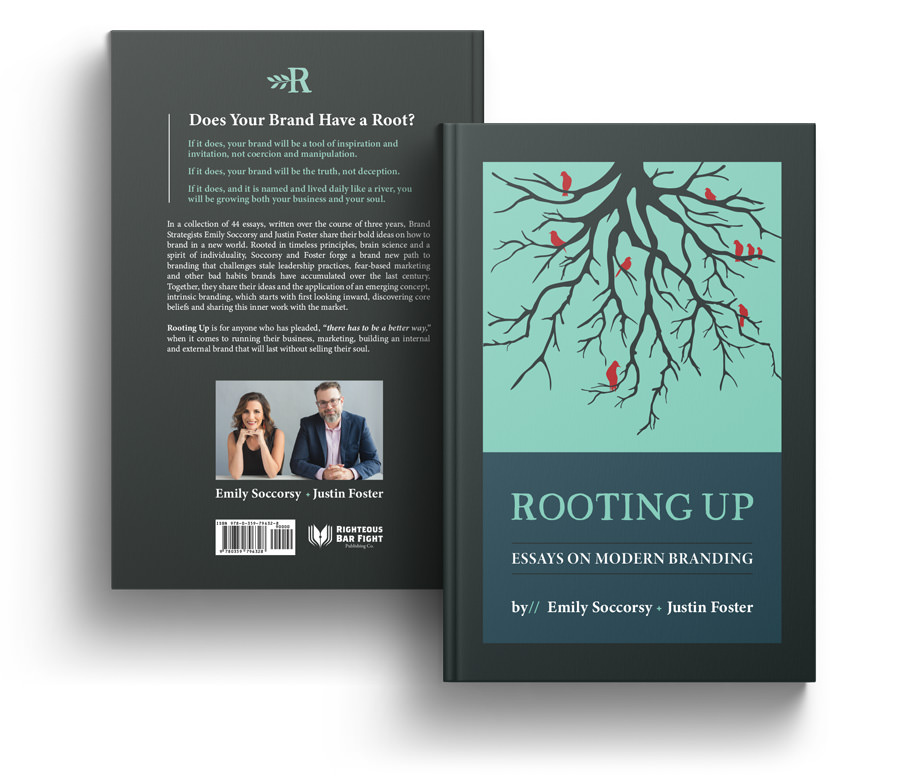Filed Under: 21st Century Branding
By Emily Soccorsy + Justin Foster
The world these days is like a hibernating bear at the end of winter. It’s getting a bit warmer out, but it’s always easier to stay asleep.
So it is in the world of leadership, too.
Leaders today have every reason to awaken: it’s good for their brand, it’s good for their business, it’s good for the people they lead — and it’s extremely needed in the world right now.
And yet, too few are rousing themselves into becoming an awake leader — an individual who is mission-driven, loves people and feels called to improve the world. Awake leaders have high emotional intelligence (EQ), tend to view change as opportunity and are disciplined about self-care. We’ve often referred to them as Opt-In leaders.
The opposite of an awake leader is what we refer to as an institutional leader. We are not condemning or scorning these institutional leaders. They serve in necessary roles for continuation of organizations and entities. But they’ve made the choice to turn over and hit snooze on their brand, on many aspects of their business, and on the development of their people — for the time being.
One area of stark contrast between awake and institutional leaders is how they see brand and branding.
Institutional leaders see brand and branding as marginally necessary activities for supporting a business model or organizational structure. A large portion of what forms this world view about brand and branding is their 20th century mindset about advertising and promotion. Because of this bias, brand is very much an external focus on perception and image – what we call the “candy wrapper” of the brand. They have a linear and literal mindset about brand. They love tactics: campaigns, slogans, message control, to name a few. In addition, they tend to untether business strategy and brand strategy. They typically see people through the lens of a role or label: employee, customer, shareholder, vendor. They tend to be defensive about public mistakes or failures.
Awake leaders see brand as an essential foundation for their life and business. They see brand as an extension of their personal and business mission and beliefs. They weave their purpose into everything they do — including their brand and their business. For the awake leader, everyone matters, and labels are unimportant. They are just as likely to have an engaging conversation with the least influential team member as they are with their board of directors. They see brand as circular, not linear. Everything connects to everything else and things like culture, customer experience and innovation are all components of a contemporary brand.
Besides not snoring, awake leaders have a number of significant competitive advantages over brands lead by institutional leaders, including:
- Quicker reactions to market changes and opportunities
- Faster get-to-market times
- Better recruiting, which leads to a more talented team, more productivity, efficiency and engagement
- Less spend on advertising and promotion because they understand and embrace the power of delight and word-of-mouth.
- Constant innovation with new products, business models and social good.
Want to learn more about awake leaders? Join us on April 27 for a free webinar on this very topic!
Emily Soccorsy + Justin Foster are cofounders of the intrinsic branding practice known as Root + River. Together with their defiantly different clients, they uncover then articulate the foundational elements of the brand. Then, they provide brand strategy and brand coaching as the brand is rolled out internally and externally. Obsessive about language and differentiation, Emily + Justin are also authors and speakers. Follow @rootandriver @fosterthinking and @emilyatlarge.
